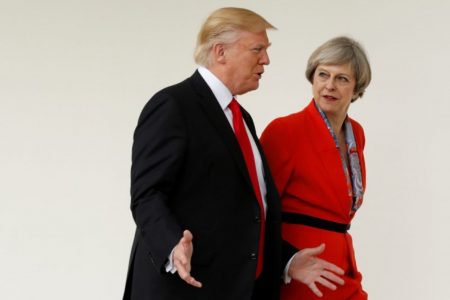The matrix
Recent developments in Romanian political workings ask for clarifications. Together with media giants, political communicators, and social media users, politicians seem to seek to totally confuse the public and our partners. This is hopefully just a reflection of multiple channel public communication, a result of filtering and of media bubbles; I don’t suspect all politicians are promoting a confusing discourse, but some thrive in a confusing environment.
Perceptions are very important in the high-paced, hyper-connected world we live in, if perceptions do not align with reality in due time, we risk developing a dissociated corpus of citizens.
Spotting manipulation and aligning perception with reality are an ever-growing need. For society to develop in a healthy manner, it will need well informed citizens, objective thinkers and clear benchmarks, else we risk slipping in a highly unrealistic and unstable world.
In Romania, information technology and social media are very popular, resulting in high social media activity. Moreover, a consistent part of society looks at social media for news and to make an idea about what is going on in the world – not very different of most western countries.
The fact that social media is also a tool for communicating and organizing, facilitated the extraordinary civic response of Romanian citizens to the Government intention of passing unpopular legislation in February 2017. There were reports of over 600.000 citizens reacting against that legislation and participating in protests that became worldwide famous under the #rezist hashtag. This translated in the Government dropping said legislation.
But things are not only romantic and jolly in social media; fake news spread like wildfire and coupled with filtering, create media bubbles that hinder the free market of ideas and create the risk of narrowing one’s perspective over the world. The internet from its beginning had a way of emphasizing the extremes – the normal and moderate just was (and continues to seem) not “good enough” for the internet. Thus, getting your information only from one source (usually the most popular one from your perspective) and perception bubbles pose a real social risk; the architecture of social media, filtering and targeted messages have their downfalls.
Politicians also got a taste of how they can change perceptions and create media bubbles using the internet. And that they did.
The play
One of the most popular political platforms in the Romanian social media is Platforma România 100, run and established by Dacian Ciolos – a former European commissioner, former minister and former prime minister of Romania.
This political association of interests started to build its brand and rise to power in the context of another anti-governmental wave of protests, remembered as the #Colectiv protests, protests that culminated with the establishment of a nonpolitical, bipartisan supported government run by Dacian Ciolos. What was interesting about this platform was the fact that they posed as non-political, non-partisan technocrats – this gained them lots of trust amongst the protesters, especially in social media. They were also able to create a carefully shaped public presence using new media means and targeted marketing.
But the reality was slightly different than most people perceived it. To establish a cabinet, a prime-minister needs the vote of parliament, and the Ciolos cabinet got a bipartisan vote from parliament; thus, its perceived non-partisanship had in fact a bipartisan essence. Some of its later positions and especially most recent developments, proved that, in fact, the Ciolos cabinet and the later Platform 100, was actually a political player; thus, the perceived non-political image, developed with the help of media, was in fact political in nature – most easily labeled as an anti-PSD right leaning government (later platform, later will-be political party). Dacian Ciolos himself being an ex-minister of agriculture between 2006 and 2007 in Calin Popescu Tariceanu’s cabinet which was also right leaning.
The main reason this perception was created is because the #colectiv protesters asked for a reformation of the political class and for a fundamental change in how politics was done and how state power was managed by our leaders. This made the Ciolos cabinet realize, that to gain the protesters’ trust, it was necessary to create an image of a new anti-establishment leadership, because the reality of a second-tier politician from the old-boys-political-era was not a narrative suitable to gain the trust of the young professionals and activists contesting the old way of doing politics.
Creating a perception different from the true nature of events, practically helped hijack the #colectiv movement and values and used it to establish a new cabinet voted in and trusted by all main post-communist political groups. This model is being replicated now with the #rezist protests.
These old school political opportunists and political bullies, take advantage of a young democracy that is struggling to overpass transition, first posing as technocrats, now posing as the lesser evil to PSD and trying to continue the “transition-of-power-amongst-themselves” game, even though Romanians are asking for a new political class and a new wave of politicians starting with the Timisoara Proclamation, most notably Point 8 of said proclamation – The Timisoara Proclamation is the first declaration of the Timisoara revolutionaries of 1989. Their voice is being ignored again and again. And now, with the power of social media, media bubbles, targeted political messages and consent manufacturing techniques, they are imposing the contrary and continue their domination.
At least now we have the advantage of free speech and cvasi-free-flowing information streams; moreover, fear of our own government start do decrees amongst millennials and young professionals that better understand democracy and the global nature of the world we live in.
There is a good side of this association of power that hijack civic movements and use them for political branding. The old boys using young blood and new era techniques, attract like a honey pot opportunistic political motivated cynics that don’t care when values and concepts like truth, objectivity and non-partisanship are framed and used for political ends – it acts as a filter between civic motivated and political motivated individuals, between collective interests and group interests.
Posing as technocrats, as objective or as non-partisan, when in fact there is a political side and political objectives to the said group of individuals, is also wrong because political power enables these perceived objective players to fill in (with perceived legitimacy) the spot suited for true objective, non-partisan and knowledgeable entities like non-partisan civic organisations, objective thinkers and experts or simple citizens that want the leadership to work for their benefit no matter what the political game is or which politicians fight over power. It’s a false way of playing the political game by practically rigging the game – it’s like the referee was playing for one of the teams. This is dangerous and may offer unfair advantages to one of the sides and facilitates a concentration of power in the hands of fewer and fewer people – which are not the fairest playing ones. If political players fill in the roles suited for objective nonpolitical people, we might as well call this a autocracy or a anarchy and stop the whole act.
We also risk, if we continue with this false perception, to lose pertinent and efficient public policies, people and resources that can benefit us all, like the Gov IT Hub initiative that I wrote about in the past. This initiative for resource and know-how development within government was hijacked and later dissolved in a old-school opportunistic manner by interests associated with the Ciolos cabinet because of cold political calculation that negatively affected us all and robbed the Romanian Government of important means for modernization and digitalization, proving again that the perceived objective of the platform was not aligned with the real intentions that they acted on.
This experience can teach us the importance of genuine objective and non-partisan thinkers, specialists or entities. Even though, sometimes, especially from a position of power, one might have the possibility to rig the game, we should always refrain from playing unfair and seek the truth and essence in all things – because, at the end of the day, we are all in this together.




